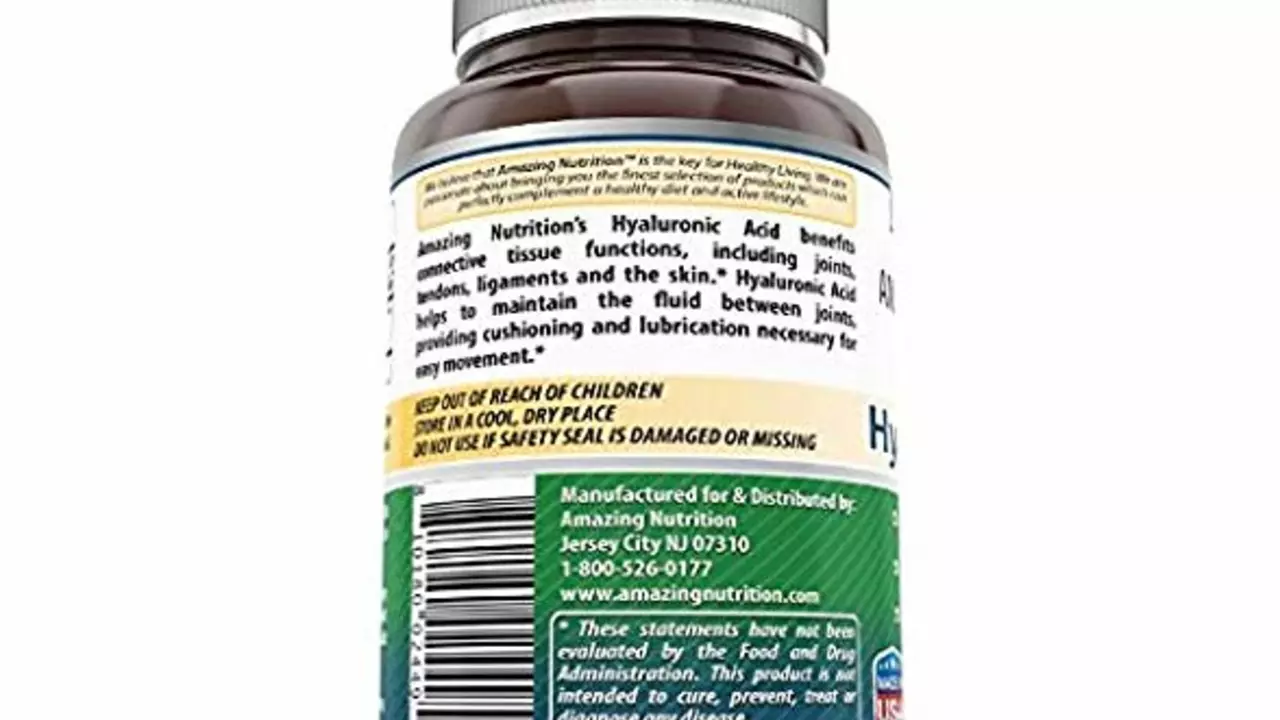Hyaluronic Acid Supplements: Benefits for Skin & Joints
Hyaluronic acid (HA) pops up everywhere — in moisturizers and in joint injections — but what about taking it as a supplement? Your body naturally stores HA (roughly 15 g in an adult), mostly in skin and joints. Supplements aim to support skin hydration, reduce joint discomfort, and help tissue repair. Here’s what actually works and how to choose a product that isn’t a waste of money.
How HA works and the evidence
HA holds water. In skin it helps plump and retain moisture; in joints it contributes to lubrication and shock absorption. Randomized trials have tested oral HA and found consistent signals: skin moisture and elasticity tend to improve after about 8–12 weeks, and people with mild-to-moderate knee pain often report reduced discomfort after 1–3 months.
Typical effective oral doses in studies range from 120–240 mg per day. That’s what many brands provide per serving. Expect gradual changes — quick fixes are rare. If you’re using HA for joints, some people combine it with glucosamine, collagen, or vitamin C for broader support; several trials studied these combos with better outcomes than HA alone, though results vary by product.
Choosing and using HA supplements
Pick products that list the form and dose. Sodium hyaluronate is the common, absorbable form used in pills. Low-molecular-weight HA is marketed for better oral absorption; topical HA often uses higher molecular weight for surface hydration. Look for third-party testing (USP, NSF or Labdoor) and clear labeling of mg per capsule/serving.
Practical tips:
- Start with 120–200 mg daily. If tolerated, follow label or your clinician’s advice.
- Give it time — check results at 8–12 weeks.
- Combine with a vitamin C-rich diet if you want to support collagen and skin repair; vitamin C helps collagen production and pairs well with HA’s moisture benefits.
- If you have severe osteoarthritis, injections (viscosupplementation) are different from oral supplements and are handled by a doctor.
Safety and interactions: HA supplements are generally well tolerated. Side effects are uncommon but can include mild stomach upset or rare allergic reactions. If you’re pregnant, breastfeeding, or on multiple medications, ask your clinician before starting any new supplement.
Final quick checklist: confirm the dose (120–240 mg daily), check the form (sodium hyaluronate, low MW for oral), prefer third-party tested brands, and allow 2–3 months to see effects. Want shinier skin or less joint stiffness? HA supplements are worth trying when chosen carefully and used consistently.
From Joint Health to Glowing Skin: The Surprising Benefits of Hyaluronic Acid Supplements
In my latest blog post, I dive into the unexpected benefits of hyaluronic acid supplements. Not only do these supplements work wonders for joint health, but they also give your skin an unmistakable glow. I was surprised to learn about the deep hydration they provide, boosting elasticity and reducing wrinkles. Additionally, they offer relief from joint pain and aid in the recovery of connective tissues. It's amazing how one supplement can have such a wide range of health benefits.
Read more
